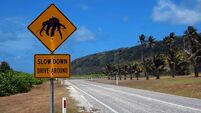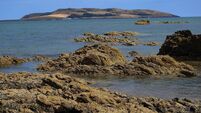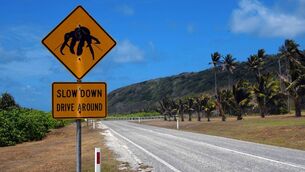Richard Hogan: Admire seals — and other wild creatures — from a distance only
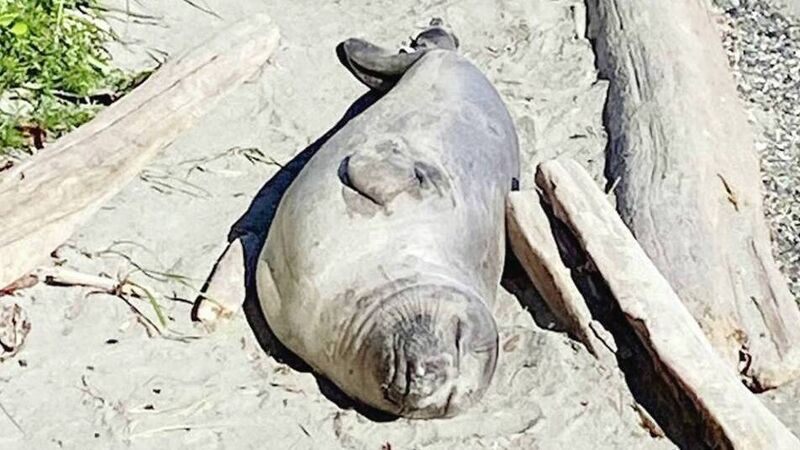
Another road in British Columbia has been closed temporarily as Emerson the seal has been crossing. "Efforts are underway to move him back down the beach to avoid an accident". Picture: @OakBayPolice
What is a weed? A plant whose virtues have not yet been discovered — Ralph Waldo Emerson.
Emerson, according to Nietzsche, was "the most gifted of the Americans". In the 1830s and 40s, he developed the philosophy known as ‘transcendentalism’. It held that each person is intimately connected with Nature and with all human kind. Nor is there any need for organised churches. Now, 140 years after his death, this champion of individualism has received yet another accolade... an individualistic animal has been named after him.
Emerson the elephant seal is back in Victoria after defying attempts to relocate him and swimming more than 200 kilometres to return to his preferred urban habitat to moult.
— CityNews Vancouver (@CityNewsVAN) April 17, 2024
https://t.co/Yt1fzYXxz4
According to Emerson, an elephant seal, was born in January 2022. His mother, Elsie Mae, was unusual in that she allowed people to approach her. The pup, it seems, inherited her tolerant disposition. Children even tried to rub noses with him. Such intimacy, however, is not recommended; elephant seals have powerful jaws. They can become aggressive and bite. Park rangers were worried, so they moved the young celebrity from his beach in Washington State to a safe undisclosed location.

But Emerson had other ideas. Two years on, this spring, he hauled out to moult on a beach near Victoria in British Columbia. Deemed a ‘health and safety’ risk, he was transported by van to a location 200km away, from which he would not be able to return. Or so it was thought. Within a week, he was back on the beach near Victoria, having swum some 30km each day.
How did he know which way to go?
Male elephant seals have large noses, vaguely resembling a trunk, which give the species its name. Like our Irish grey seals, males visit ‘rookeries’ where they fight to establish territories. Then females arrive and form harems. An alpha male can have up to 50 cows in his charge. Beta bulls have no territories. They roam the beach, stealing the occasional mating when an alpha bull is looking the other way. Babies are born 11 months later. Mothers nurse them for about a month, after which they must fend for themselves.
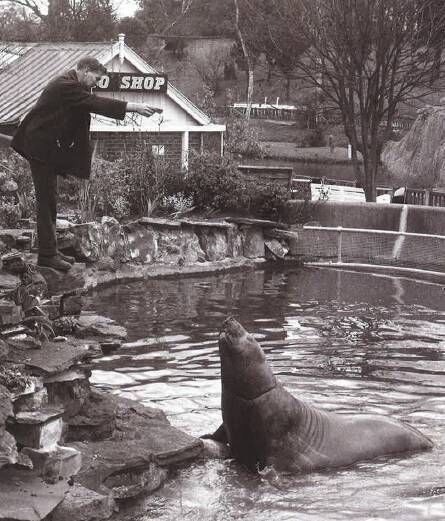
Oddly, the species is quite well known in Ireland, at least to people ‘d’un certain age’; Dublin Zoo acquired a young male elephant seal in 1965. According to Zoo historian Catherine de Courcy, he consumed so much fish that, had An Bord Iascaigh Mhara not stepped in to sponsor his upkeep, he would have eaten the place out of house and home. As a result he became known as ‘BIM’. I remember seeing this 2-tonne 4-metre-long monster, who once cracked the concrete wall of his pool causing it to leak. He escaped from his enclosure on two occasions and went walkabout in the gardens. Bim died of heart-failure in 1969.
Global warming is affecting elephant seals. A paper published in 2009 showed that, with rising ocean temperatures, more male than female offspring are being born. Evolutionary theory predicts that "if resources are limiting, females should produce a male-biased sex ratio".
But what is the future for Emerson? When he has grown his new coat, he will, hopefully, return to the ocean where he belongs. Until then, rangers will work to keep him out of harm’s way and restrain his human admirers.
- Catherine de Courcy. . 2009



